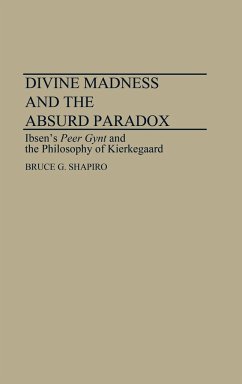This book is a comprehensive study of Peer Gynt, a drama that forms the foundation of not only the entire Ibsen canon but also modern drama as a whole. It provides scene-by-scene commentary on the drama, showing how the literature and ideas of the drama resemble, and sometimes duplicate, the literature and philosophy of Soren Kierkegaard. It is the first such study since Henri Logeman's commentary on the drama published in 1917. Although the main focus of the book is Ibsen's drama, Bruce Shapiro's study provides some substantial insights into Kierkegaard. He demonstrates how Ibsen's poem was influenced by Kierkegaard's philosophy and literature. One of the most perplexing questions about Peer Gynt is how the ending of the drama functions as a resolution to the whole. This study formulates an understanding, based upon Kierkegaardian philosophy, that accounts for this scene. Moreover, the revelation of Kierkegaard's influence on Ibsen allows the contemporary reader to experience the essence of the drama within the same intellectual context in which it made its first literary appearance. When Kierkegaard's philosophy is artistically brought back into existence through a reader's experience of Peer Gynt, it is as if that reader is a contemporary of those very thoughts. With Kierkegaardian philosophy as the common horizon of understanding, Peer Gynt may be perceived as a complete and unified drama from its beginning to its conclusion. Shapiro's book is the first comprehensive study of Peer Gynt to be published. It may also be the first study to demonstrate one way in which the entire Kierkegaardian dialetic was understood during the philosopher's lifetime. This unique work will be a valuable book for scholars and students of drama, Scandinavian studies, modern philosophy, and existentialism.
Bitte wählen Sie Ihr Anliegen aus.
Rechnungen
Retourenschein anfordern
Bestellstatus
Storno









